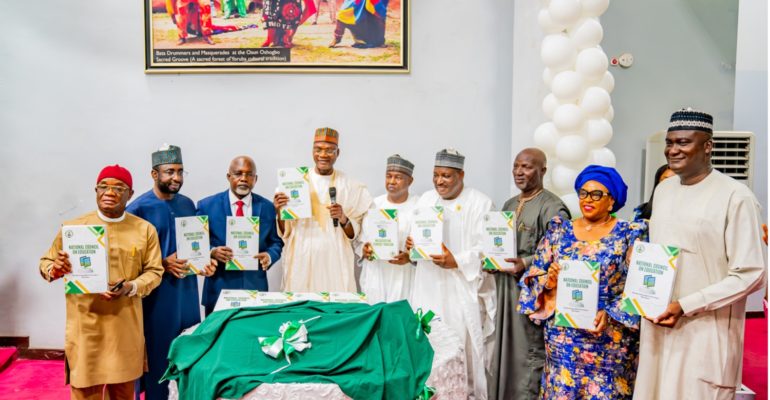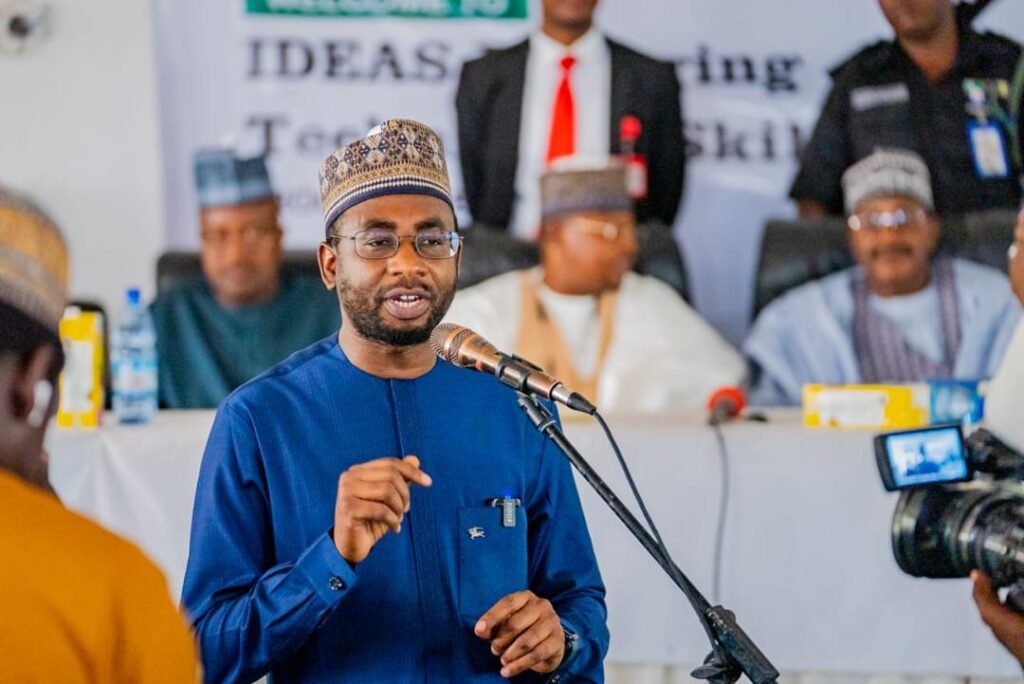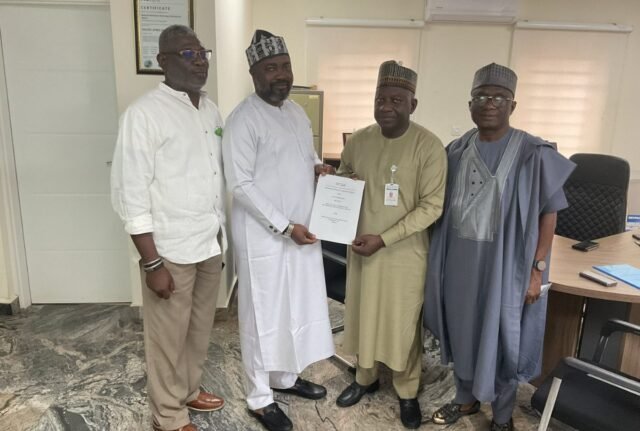In a decisive move to foster grassroots digital transformation, the National Information Technology Development Agency (NITDA) has entered into a strategic partnership with Benue State’s digital arm, the Benue Digital Infrastructure Company (BDIC), targeting a sweeping enhancement in digital literacy, smart education, and ICT infrastructure across the state. The Memorandum of Understanding (MoU), signed on June 27, 2025, at NITDA’s Abuja headquarters, aligns state-level efforts with NITDA’s national strategic goals to bridge Nigeria’s digital divide.
Leading the initiative were BDIC’s Managing Director/CEO, Gbande Hembaor Terwase, and NITDA’s Acting Director General/CEO, Sarafa Lawal. This high-level collaboration comes against the backdrop of a broader national drive, fuelled by NITDA’s landmark launch earlier this year of the “Digital Literacy for All” initiative, aiming for 70% literacy by 2027 and 95% by 2030.
A comprehensive roadmap for digital readiness
Under the partnership, NITDA will spearhead several pivotal efforts:
- Localising the National Digital Literacy Framework (NDLF): NITDA will ensure that Benue’s digital literacy programs mirror the national digital literacy benchmarks and curriculum frameworks.
- Pilot smart schools roll-out: Fifteen secondary schools across Benue will be upgraded into “smart schools,” integrating AI, coding, and technology-based learning, mirroring evolving job market demands.
- “One Student, One Teacher, One Computer” scheme: NITDA will support BDIC in implementing this ambitious initiative aimed at equitable, certified ICT education for every learner and educator.
Collectively, these initiatives will strengthen Benue’s capacity to cultivate a digitally fluent generation, equipped for Nigeria’s digital economy. Regular strategic meetings, aimed at enhancing industry alignment and refining state-level needs, will underpin sustained cooperation, while ongoing information-sharing efforts are designed to bolster public awareness, disaster management, and administrative agility.

A state-anchored digital transformation
Benue’s digital aspirations form part of a grander vision. Governor Hyacinth Iormem Alia has elevated the digital economy to a “cornerstone” of his administration’s governance framework, ensuring ICT and human capital development remain integral to state policy. Under this vision, BDIC has already launched AI-focused training and coding workshops for secondary school students—positioning Benue as a trailblazer at the sub-national level.
Moreover, Benue is already deploying satellite and digital signal technologies—via partnerships with NASRDA—to strengthen border surveillance and governance infrastructure. This integration of digital tools in public service delivery amplifies the state’s readiness for deeper tech integration.
National momentum, local impact
The NITDA–BDIC partnership dovetails with NITDA’s national strategies, including its Digital Literacy for All program. Since its nationwide launch in May 2025, the initiative has mobilized stakeholders across Nigeria to impart digital proficiency in six core areas: device operation, data literacy, online collaboration, content creation, safety, and problem-solving. The program’s ambition to achieve near-universal digital literacy by 2030 reflects Nigeria’s aim to harness technology for inclusive growth and youth empowerment.
Furthermore, the broader 3 Million Technical Talent (3MTT) program—an NITDA initiative seeded under President Tinubu’s Renewed Hope Agenda—aims to train three million Nigerians in AI, data science, cybersecurity, and other future‑led skills by 2027; it forms a critical backdrop to the Benue project.
Strategic alignment and sustained impact
The synergy between Benue’s approach and NITDA’s national agenda is evident:
- From policy to playground: The domestic adaptation of NITDA’s NDLF ensures consistency in teaching standards while contextualizing curriculum for Benue’s realities.
- From classrooms to careers: Smart school pilots and one‑to‑one tech schemes offer hands-on exposure, bridging the gap between theoretical knowledge and practical application.
- From plans to programs: Regular joint oversight from NITDA and BDIC guarantees both accountability and resilience during implementation.
Indeed, this MoU is more than paperwork—it’s a working blueprint. The strength of the collaboration lies in its mutual commitment: even as challenges like logistics, resource mobilisation, and capacity constraints persist, both NITDA and BDIC are dedicated to delivering agreed outcomes faithfully.
Gauging broader influence
- Educator capacity: Teachers in the 15 pilot smart schools will receive targeted training in AI, coding, and digital pedagogy—developing a scalable model for state‑wide ICT integration.
- Student transformation: Integrating certification into the one‑to‑one scheme embeds validity and motivation into the learning process, reinforcing credibility and employability.
- Governance systems: Shared data and communications infrastructure improve Benue’s capacity for digital governance in areas from disaster response to administrative efficiency.
- National replication: As one of the first in-depth state-level digital literacy partnerships, Benue’s experience may shape replication across other Nigerian states, especially those keen on state‑led digital education.

Challenges in view
No ambitious digital agenda is without hurdles:
- Infrastructure and connectivity: While BDIC is advancing signal infrastructures, rural coverage consistency and power stability remain crucial bottlenecks.
- Teacher preparedness: Rolling out new tech requires more than equipment—it requires sustained capacity‐building and professional support.
- Funding and continuity: Digital literacy is a marathon, not a sprint. Long‑term funding strategies—including public-private partnerships—will be key.
What lies ahead
Looking ahead, here’s what would define success:
- Pilot school roll‑outs in 2025–26, including equipment delivery, teacher training, and community engagement.
- Certification outcomes for students and teachers, linked to national benchmarks.
- Performance reviews via joint NITDA–BDIC meetings, tracking milestones and addressing operational barriers.
- Media and public outreach to showcase early wins and build citizen demand across Benue.
- Replication and scaling, both within Benue and in other states seeking similar collaborations.
Conclusion
By embedding NITDA’s national frameworks into Benue’s localised systems, this partnership marks a significant milestone in Nigeria’s path toward a digitally inclusive future. The synergy of federal policy, state urgency, and private‑sector agility bodes well for transformative outcomes.
For Benue, this step is more than institutional—it is generational. It signals a growing belief that every student, teacher, and community should have access to the tools and skills of tomorrow. For NITDA, it’s a reaffirmation of its mandate: to cultivate a society where digital literacy is not the privilege of the few, but a right of all.
As we hear from BDIC’s Terwase, “This partnership marks another critical milestone in our mission to make digital knowledge accessible, impactful, and transformational for all learners across the state.” And for NITDA, the collaboration strengthens a national narrative—that in Benue today, and across Nigeria tomorrow, digital literacy is no longer a distant ambition but a rapidly unfolding reality.
Join Our Social Media Channels:
WhatsApp: NaijaEyes
Facebook: NaijaEyes
Twitter: NaijaEyes
Instagram: NaijaEyes
TikTok: NaijaEyes













![Heartwarming Moment: Priscilla Ojo and Son Rakeem Reunite with Juma Jux in Tanzania [VIDEO] Priscilla Ojo](https://naijaeyesblog.com/wp-content/uploads/2025/09/Reunited-Priscilla-Ojo-says-as-she-celebrates-son-Rakeem-one-month-Kemi-Filani-blog-min-768x512-1-1-180x135.avif)


























